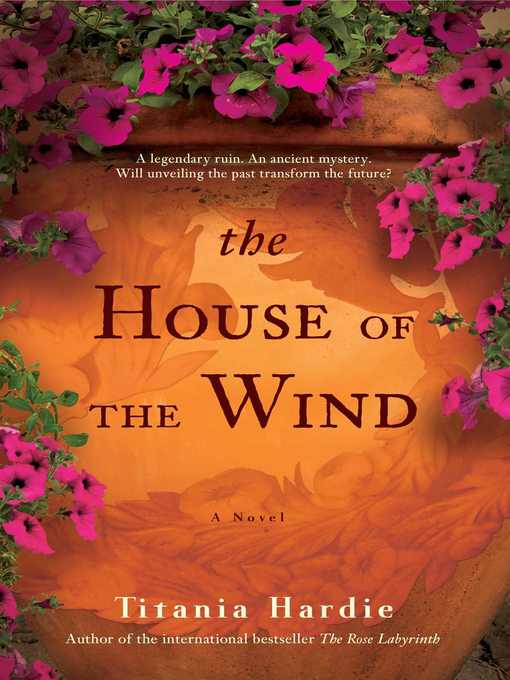
The House of the Wind
A Novel
کتاب های مرتبط
- اطلاعات
- نقد و بررسی
- دیدگاه کاربران
نقد و بررسی

Starred review from January 9, 2012
In her second novel (after The Rose Labyrinth) Hardie, who’s written extensively on magic and folklore, pulls together Etruscan legend, corporate lawsuits, and medieval daily life into a cohesive and addicting story. Maddie is a bright young lawyer in San Francisco, whose energy and special zest for her clients—the employees of Stormtree Components Inc., who allege they were sickened by workplace toxins—is suddenly drained by the untimely death of her fiancé. Lost in grief, Maddie travels, at her grandmother’s suggestion, to the family’s native Italy and there, in a villa in Tuscany, she finds a group of people whose willingness to help her out of her despair seems almost otherworldly. Meanwhile, Hardie offers glimpses of the same villa in the 14th-century, when it was a stopover for pilgrims and run by a sharp unmarried woman, Jacquetta, and her adopted child, Mia. When a particularly exceptional pair of pilgrims, Angesca and Porphyrius, arrive, Mia is introduced to a mystical way of life. Agnesca’s powers as a healer are of great significance as Italy is ravaged by the plague, but her ultimate tool is hope. Back in the present day, Maddie is summoned away from her idyllic vacation by her law firm and the ongoing trial. Hardie has merged Under the Tuscan Sun with Erin Brockovich into a story both heavily atmospheric and thematically hypnotic. Agent: Andrew Nurnberg and Sarah Nundy, Andrew Nurnberg Associates.

February 1, 2012
In a substantial, poignant, sometimes ponderous parallel-themed romance, a young lawyer in San Francisco emerges from tragedy to discover connections across time and geography. There are no shortcuts and little frivolity in this solid, female-centered epic, the second novel from Australian-born, U.K.-based Hardie (The Rose Labyrinth, 2008). Signs and portents, relics, histories, religious debates, lawsuits and voyages of personal discovery cram the convoluted, overextended pair of narrations linked by 21st-century American Madeline Moretti, whose life suddenly shifts tracks and sends her on a journey to an Italian inn, the site where, six centuries earlier, a traumatized, mute teenager is restored to voice by a fugitive who has endured terrors and is the subject of myth. In the present, Madeline is caught up in a human-rights case involving the employees of smooth, seductive businessman Pierce Gray, who seems to be pursuing her, as does the more elusive Danish architect she meets in Italy. In the past, crime, plague and banishment link the destinies of three strong women with healing talents. Hardie seems heavily in thrall to her research; while her twin tales eventually reach pat endings, they fall short of a fully meshed conclusion.
COPYRIGHT(2012) Kirkus Reviews, ALL RIGHTS RESERVED.

February 15, 2012
In her next novel after The Rose Labyrinth (2009), Hardie mixes Tuscan lore and convoluted ancestry to form a lyrical bridge between the past and the present. In 2007, San Francisco attorney Madeline Moretti is shattered when her fiance is killed by a drunken driver. As Madeline struggles to rebuild her life while working on an involved court case concerning deaths at a high-tech company, Mia, a young mute in 1347 in Tuscany, works equally hard to overcome her silent state with the help of a mysterious visitor whose husband brings the plague into their lives. When present-day Maddie receives a plane ticket to Tuscany, an Italian seer in the Bay Area says Maddie will reset her life there as well as find the means to make her way back to love. Maddie ends up staying in Mia's villa, where she discovers a marvelous, mystical garden that Mia and her strange visitor built. At times lyrical, the tale of Maddie's journey will charm those who are enraptured by the Tuscan mystique.(Reprinted with permission of Booklist, copyright 2012, American Library Association.)

























دیدگاه کاربران